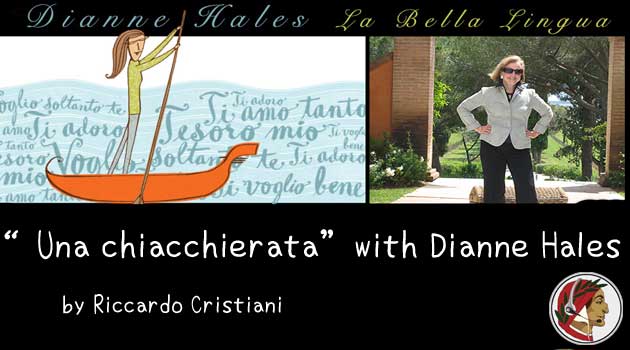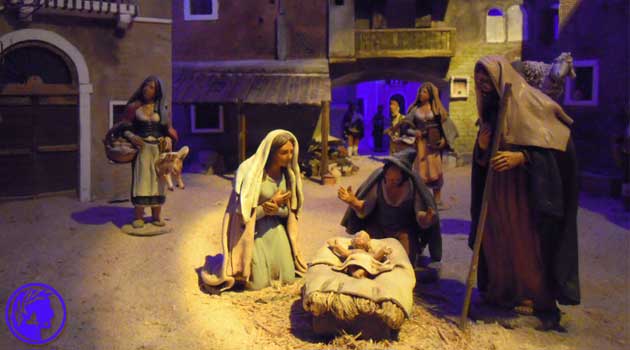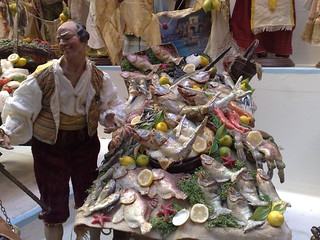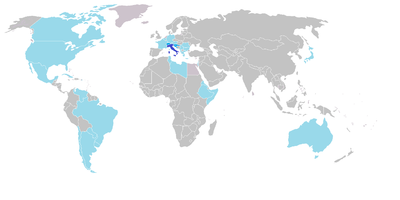A friendly conversation with the author of the best-selling book “La bella lingua” and the brand new “Mona Lisa: A life discovered”
I’m very happy to finally have the chance of “chiacchierare” (chatting) with Dianne Hales. I am fascinated by the genuine love Dianne feels for my native language, expressed with passion in her book, “La bella lingua”, a tribute to the evolution of the Italian spoken and literary language and, at the same time, the description of her intimate journey for “becoming Italian word by word”.
“Mona Lisa: A life discovered”, her new intriguing book, is the story of a “flesh-and-blood woman who became one of the most famous artistic subjects of all time”. Release date, 5th of August 2014.
Prima di tutto, benvenuta. Thanks for being here. Come stai?
Molto bene. Thank you for inviting me.
You were in Italy for the first time in 1983, and the only words you could say were “non parlo italiano”, I don’t speak Italian. Do you still observe Italy with the same curiosity of that American girl?
I remain endlessly intrigued and amused and bemused. Back then everything was exotic. I had no idea that many of the animated Italian conversations I couldn’t understand were about food. Now Italy is far more familiar—more like an old friend whose company I always enjoy than an enticing stranger.
How “Italian” is Dianne now, after such a long affair with Italy and our language? Are your still in love?
Si, ancora innamorata! I’ve been married for 36 years and am still very much in love with my husband too, so maybe it’s my nature. But Italy and Italian never fail to delight me. My ties to Italy have become so much deeper and stronger over the years, largely because of relationships with Italian friends. One of my favorite quotes comes from E.M. Forster, who wrote: “Love and understand the Italians, for the people are more marvelous than the land.” And they are.
I totally agree, even though people used to order and discipline can find Italians bizarre. In every “lunga storia d’amore”, long love story, there’s always something we can’t fully accept about our partner. What would you like to change of today’s Italy?
“Povera Italia! Sempre malgovernata!” Italians have been saying for years. But I never realized what a toll poor government and corruption can take. I hear from friends how there’s no money for education, for art, for parks, for repairing roads, and restoring art. And it makes me sad to see this beautiful country with its wonderful heritage neglected.
Sorry, I used a very confidential tone with you. I should have been more respectful and ask you “possiamo darci del tu?”, because now you are an Italian Cavaliere (Knight of the Order of the Star), awarded by President Giorgio Napolitano.
It came as a complete surprise. I had no idea an American could become an Italian knight. It struck me as such a honor that this recognition came for a labor of love — love for a language, no less.
I really liked a line in your preface of La bella lingua: “If I have committed any strafalcioni, the Italian word for blatant linguistic blunders, I apologize. La colpa è solo mia”. I must confess that’s exactly what I think whenever I write something in English. After so many efforts for “becoming Italian word by word” what is your “bestia nera”, the most difficult aspect of the Italian language?
I spend most of my life in the U.S. and I read in and about Italian every day, but I lose my verbal ease. I wish my accent and pronunciation were better. And I stumble over verb conjugations. I can’t say how many times I’ve studied the congiutivo yet still remain unsure of when or when not to use it. My closest friends in Italy are Italian scholars who helped me when I was researching LA BELLA LINGUA, so I’m quite self-conscious about my grammar. I wish I could be more disinvolta, more relaxed. Of course, a bit of wine helps.
A glass of Italian wine “fa buon sangue”, makes good blood. What would you suggest to foreign students approaching for the first time the Italian language?
Drink it in with every sense. Read it. Listen to it. Sing it. Watch movies in it. Let the sheer beauty of its rhythms carry you away so you want to do the hard work of mastering grammar and building vocabulary.
We know you as the successful author of La bella lingua, but you also wrote a book called Just Like a Woman, where you bust stereotypes about women based on male models. I think in my country there’s nothing more stereotypical than the Italian mamma. What do you think about Italian women?
I admire them. For so long, their political and financial power was limited—and it still may be. But Italian women are strong. They are more comfortable in their skins than American women. I have met many accomplished and successful Italian women who never lose sight of the importance of love and family and home. They’re tough but tender—and so stylish! I envy their ability to walk the cobblestoned streets of Rome in high heels.
Speaking of Italian women, we are very much looking forward to reading your next book: “Mona Lisa: A Life Discovered”. Could you tell us something about it? Why Lisa Gherardini?
The first time I learned that the woman in La Gioconda was a real woman, una fiorentina, I became curious. I had wanted to include a chapter on women’s writings in LA BELLA LINGUA but it was very hard to find material. Yes, there were Venetian poets (mostly cortesans) and intellectuals like VIttoria Colonna, but women never had the opportunity to speak for themselves. Lisa Gherardini has the most famous face in the world—but no voice. Because people don’t think of “her” as real, the painting has been mocked and mutilated and parodied thousands of times. But she was a real flesh-and-blood woman—a daughter, a wife, a mother, a Florentine, a Christian and, of course, a muse. I wanted people to see her as three-dimensional, as a human being not unlike any of us. My book is a true story of discovery, ablend of history, biography, and memoir. I loved immersing myself in Lisa’s world, and I am eager to share what I’ve learned.
Are you going to Italy any time soon? Any special plans?
Yes, I will be going to Italy in the fall to celebrate the publication of MONA LISA. I want to thank the many people who helped me and to bring more recognition to Lisa in her hometown.
Grazie mille per essere stata con noi. Thank you so much Dianne.
A presto!
Dianne Hales’s “Mona Lisa – A life discovered” is published by Simon & Schuster. It can be pre-ordered on Amazon. Release date August the 5th 2014.
More about Dianne Hales:
http://www.diannehales.com
http://www.monalisabook.com/
http://www.becomingitalianwordbyword.typepad.com/







